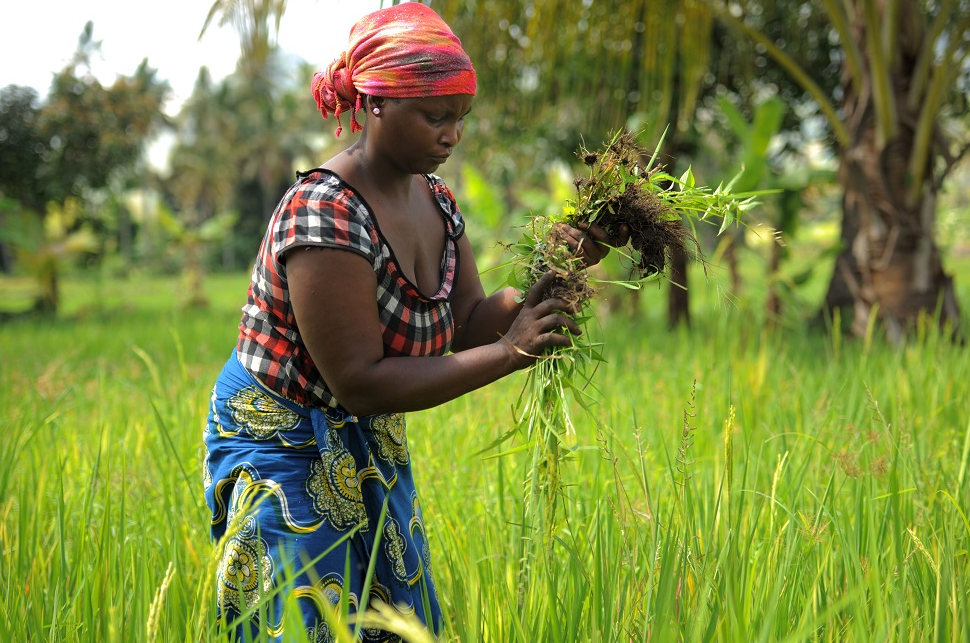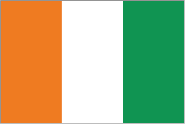Supporting Ivory Coast to advance their NAP process
Project Overview
Sep 2015
Côte d’Ivoire submits its Intend Nationally Determined Contribution (INDC) to the Paris Agreement
Oct 2015
The NAP-GSP undertakes a mission to Côte d’Ivoire to discuss the NAP process with stakeholders and identify next steps
Oct 2015
A workshop is held in Abidjan to introduce the NAP process to key stakeholders
Oct 2016
Côte d’Ivoire ratifies the Paris Agreement and submits its First NDC
Dec 2016
A workshop is held in Abidjan to validate the Stocktaking Report and develop a roadmap for a NAP for Côte d’Ivoire.
Mar 2017
A Readiness and Preparatory Support Proposal for potential funding to support the NAP process is submitted to GCF for review
Jan 2019
The Green Climate Fund approves the project outlined in the Readiness proposal

Country background, Sustainable Development Goals and Paris Agreement
Côte d’Ivoire is located in West Africa along the Gulf of Guinea with the Atlantic running along its southern edge. Although recently emerging from post-election conflict that ensued 2010 – 2011 and stifled economic growth, Côte d’Ivoire has the second largest economy in West Africa and is classified as a lower middle-income country. High rainfall in the south fuels a fertile agricultural industry which constitutes 27 per cent of GDP. As a top world exporter of cocoa and cashews and with 70 per cent of the working population employed in the agricultural industry, Côte d’Ivoire is vulnerable to variations in weather and climate as well as external shocks in its export trade.
Efforts have been made by the government to develop an institutional framework that addresses the problems posed by climate change, specifically the development of the National Climate Change Programme (NCCP/PNCC). In 2015 the country submitted an INDC to the UNFCC, which later became their First NDC when the government ratified the Paris Agreement in October 2016. The NDC has a section on adaptation that outlines the country’s desire to develop a NAP. The NAP would address the 11 vulnerable sectors identified by the Ministry of Environment, Urban Sanitation and Sustainable Development (MINESUDD) in 2013, and lays out specific action points for the most crucial of these focus areas: water resources; agriculture; livestock and fisheries; forests and land use; coastal zones; and energy.
As well as the NDC, Côte d’Ivoire has submitted three National Communications to the UNFCC; the first was submitted in 2001; the second in 2010; and the third in 2017. However, the country is yet to develop other key strategic climate change documents, including a NAP, and needs to reinforce its existing institutional framework by integrating climate change into planning and budgeting at all levels (national, regional and local), and the NAP-GSP will offer support to the government to achieve this. With climate change factored into national planning, development gains can be protected and the government’s goal of upgrading Côte d’Ivoire to an emerging economy by 2020 can be realised.
How has the NAP-GSP supported to date?
|
UNDP conducted a mission to Côte d’Ivoire in November 2015 to gather information on the NAP process
|
The goal of the mission was (i) to make an inventory of adaptation to climate change in Côte d’Ivoire; (ii) to identify the strengths and obstacles related to the elaboration of the country’s first NAP; (iii) to identify key players; and (iv) to validate the roadmap for the development of the NAP with the various stakeholders. The mission served to inform a stocktaking report that assisted the government in identifying the key actions and financial needs to mainstream climate change adaptation.
|
|
NAP-GSP helped organise a workshop in Abidjan
|
On the 22nd October 2015 a workshop was held in Abidjan to UNDP to sensitise stakeholders to the NAP process. Then in December 2016 a workshop was held again in Abidjan to validate the Stocktaking Report and develop a roadmap for a NAP for Côte d’Ivoire. Over 40 professionals attended including representatives from various government ministries, academics, NGOs and media. The workshop was designed to be interactive and encouraged deliberative discussions and feedback from all stakeholders. Respondents raised concerns, such as the current lack of integration between ministries, as well as outlined their expectations of the NAP process.
|
|
Helped build capacity and facilitated access to additional climate finance
|
The Readiness and Preparatory Support Proposal, submitted to the Green Climate Fund (GCF) in March 2017, describes (1) the need to establish and strengthen National Designated Authorities or Focal Points and (2) to developing strategic frameworks for engagement with the GCF, including the preparation of country programmes. The project was approved in January 2019.
|
